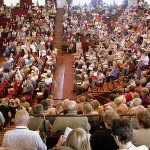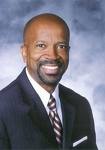My Favorite Opinions, by a Former Justice
 Having served on the Wisconsin Supreme Court, I am often asked about which case was my favorite. It is always difficult to answer that question, because I liked many cases for a variety of different reasons. So I thought I would share my experience with three of them. I really enjoyed working on cases that took me into not only interesting research but other cultures. State v. Davids involved a Native American charged with the offense of fishing without a license. The real issue before the court was whether the Stockbridge-Munsee reservation, as its boundaries were defined by the Treaty of 1856, was diminished by federal legislation in 1871 and terminated by federal legislation in 1906, thereby placing the area encompassing Upper Gresham Pond under state jurisdiction and requiring all who fished there to have a valid state fishing license, including Bert Davids, an enrolled member of the Stockbridge-Munsee tribe. That case had me dusting off old treaties and historical writings (actually my law clerk, Kathleen Rinehart, did the dusting off of the books) to better understand the various different types of agreements between the federal government and particular tribes. It became a rewarding history lesson in Indian treaties and the reasons for those agreements. I could not write the opinion without better understanding what was happening in tribal politics at the time. It became a lovely and interesting history lesson in and of itself. The conclusion of the case was that Mr. Davids indeed needed a fishing license for Upper Gresham Pond.
Having served on the Wisconsin Supreme Court, I am often asked about which case was my favorite. It is always difficult to answer that question, because I liked many cases for a variety of different reasons. So I thought I would share my experience with three of them. I really enjoyed working on cases that took me into not only interesting research but other cultures. State v. Davids involved a Native American charged with the offense of fishing without a license. The real issue before the court was whether the Stockbridge-Munsee reservation, as its boundaries were defined by the Treaty of 1856, was diminished by federal legislation in 1871 and terminated by federal legislation in 1906, thereby placing the area encompassing Upper Gresham Pond under state jurisdiction and requiring all who fished there to have a valid state fishing license, including Bert Davids, an enrolled member of the Stockbridge-Munsee tribe. That case had me dusting off old treaties and historical writings (actually my law clerk, Kathleen Rinehart, did the dusting off of the books) to better understand the various different types of agreements between the federal government and particular tribes. It became a rewarding history lesson in Indian treaties and the reasons for those agreements. I could not write the opinion without better understanding what was happening in tribal politics at the time. It became a lovely and interesting history lesson in and of itself. The conclusion of the case was that Mr. Davids indeed needed a fishing license for Upper Gresham Pond.
I also liked State v. Miller,


